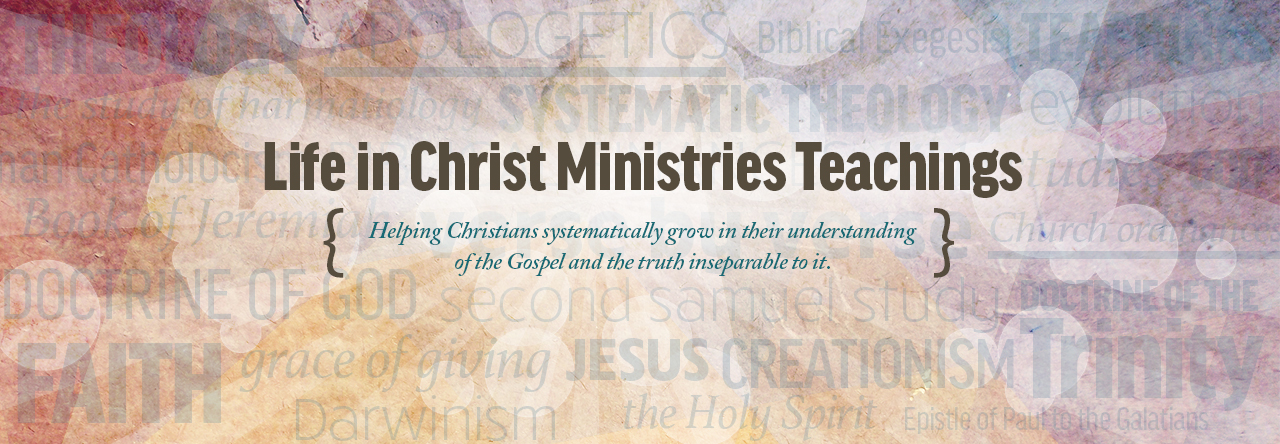One should approach the opening chapter of Genesis as they would any other portion of the Bible; namely, by trying to understand it within its proper context and in light of other Scriptures. Does the text present itself as straightforward and historical, or poetic and allegorical? With the pervasive advances of naturalistic evolution both inside and outside of the visible church those kinds of questions have become increasingly frequent as it relates to Genesis 1. As a result, many have jettisoned a straightforward reading of the opening chapter of the Bible in order to accommodate evolutionary theory and, in turn, argue that the Bible says something it was never trying to say.
Tag: History

Instructor. As the Bible will show again and again, God is an instructor. In the opening verses of this chapter we see God instruct Noah to “come into the ark” (vs.1a), take seven of every clean animal (vs.2a) and two of every unclean animal, both male and female into the boat (vs.2b). He who is infinitely wise condescends to explain things to men in such patient detail when, by Himself, He could accomplish such feats with incredible ease. So, whether it was God telling Noah how to build the ark (Gen. 6:15-16), or God instructing Moses how to build the Tabernacle and the things in it (Ex 25-27), or Jesus sending out the twelve with specific instructions (Lk 9:1-6), the God we love and serve is a God who loves to instruct the people He chooses to redeem and work through.

We have a rare occasion here in Jeremiah 26. No, not Jeremiah being persecuted by the people of Judah. That has become standard fare. And no, it’s not the fact that Jeremiah was preaching a sermon in temple courts – we saw that in Jeremiah 7 (and this may be an amplified narrative of that event). Here we have an exceptional occurrence where the people and princes of Judah ‘go to bat’ on behalf of God’s prophet. In Israel’s history you can say that times like this came around ‘once in a blue moon,’ i.e. very rarely. Let’s create some context and then jump into our text.

Having seen the prophet’s call in chapter one, our attention is now directed towards the prophet’s message in chapter two. Jeremiah began by writing, “Moreover the word of the LORD came to me, saying…” (vs.1). The message that follows, the first prophetic utterance that we read of Jeremiah receiving, continues all the way through the beginning of the following chapter (2:1-3:5). But before Jeremiah received the words he was to speak, the LORD told him what to do and where to do it: “Go and cry in the hearing of Jerusalem, saying…” (vs.2a). Not Anathoth, but Jerusalem. Not a small village, but a capital city. Whatever reticence of public speaking and preaching that Jeremiah had (cf. Jer. 1:6), it was about to be confronted head-on. This message was meant to be heard by the Jewish masses; hence the expression: “… cry in the hearing of Jerusalem.” The good news for Jeremiah was – he not only had an imperative but a promise of God’s presence – “speak to them all that I command you…for I am with you…” (vs.17a, 19b). The Christian can relate, he or she has just about the same imperative and promise (Mt. 28:19,20), but with a far greater announcement.

“It was the best of times, it was the worst of times.” That’s not only part of the opening line to Charles Dickens’ A Tale of Two Cities, it’s also a decent way of characterizing the historical backdrop for the book of Jeremiah. Only, the percentage of time that was good was much, much less than the time that wasn’t. I’ll explain why I say that and how we know that in a moment but first let’s quickly see how Jeremiah is introduced to us. He is the prophet whose words we read – “the words of Jeremiah” (1:1a) and the prophet “to whom the word of the LORD came” (1:2a). He was one of those holy men that Peter described who was carried along by the Holy Spirit (2 Pet. 1:19-21), writing with his personality and writing style all intact, yet so sovereignly superintended that the result of his script was, none other than, God-breathed Scripture (2 Tim. 3:16).













